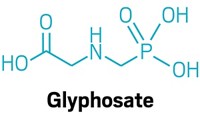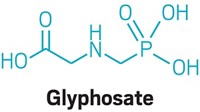Advertisement
Grab your lab coat. Let's get started
Welcome!
Welcome!
Create an account below to get 6 C&EN articles per month, receive newsletters and more - all free.
It seems this is your first time logging in online. Please enter the following information to continue.
As an ACS member you automatically get access to this site. All we need is few more details to create your reading experience.
Not you? Sign in with a different account.
Not you? Sign in with a different account.
ERROR 1
ERROR 1
ERROR 2
ERROR 2
ERROR 2
ERROR 2
ERROR 2
Password and Confirm password must match.
If you have an ACS member number, please enter it here so we can link this account to your membership. (optional)
ERROR 2
ACS values your privacy. By submitting your information, you are gaining access to C&EN and subscribing to our weekly newsletter. We use the information you provide to make your reading experience better, and we will never sell your data to third party members.
Environment
Global cancer agency’s funding in the crosshairs
U.S. Congress investigates science underlying glyphosate assessment
by Britt E. Erickson
February 12, 2018
| A version of this story appeared in
Volume 96, Issue 7
2017 IARC funding
Total budget is $26.9 million
U.S. assessed contribution is $2.0 million
U.S. paid $600,000 as of Jan. 15, 2018
Note: 70% of IARC’s budget is shared equally by 24 countries, while the remaining 30% is assessed based on a country’s wealth and population.
Republican leaders in the U.S. House of Representatives are threatening to withhold funding from the World Health Organization’s cancer research arm, the International Agency for Research on Cancer (IARC). The U.S. provides about $2.0 million, or about 7.4% of IARC’s annual budget.
At issue is a 2015 IARC assessment that classifies the widely used herbicide glyphosate as a probable carcinogen. Glyphosate is the active ingredient in Monsanto’s Roundup and many other generic herbicide formulations. IARC’s assessment led to lawsuits against Monsanto and an uproar last year in the European Union over whether to continue allowing use of the herbicide.
The agrochemical industry and its allies in Congress are intensifying an attack on IARC and its glyphosate assessment. Rep. Lamar Smith (R-Texas), chair of the House Science Committee, held a hearing on Feb. 6 to examine what he says are “serious problems with the science underlying IARC’s assessment of glyphosate.” The director of IARC, Christopher Wild, declined the committee’s invitation to provide a witness for the hearing.
IARC is the only agency that has classified glyphosate as a probable carcinogen. Regulatory agencies in the U.S. and EU say the herbicide is safe. In a draft human health risk assessment released in December, EPA concludes that glyphosate has “little to no hazard when exposure is to the skin and when it is inhaled,” Anna Lowit, a science adviser in EPA’s Office of Pesticide Programs, testified at the Feb. 6 hearing. “Effects in laboratory animals were only seen through ingestion at high doses,” she added.
Democrats and environmental groups are calling for the House to investigate whether Monsanto influenced EPA’s review.
“Today’s hearing supports the agrochemical industry agenda to discredit and ultimately defund IARC,” noted Jennifer Sass, a senior scientist with the Natural Resources Defense Council. Sass claimed that the agrochemical industry is using tobacco-industry tactics to “support glyphosate registration and approval” and to “defend itself against litigation claims by thousands of farmers that were once Monsanto Co. customers and are now cancer patients.”





Join the conversation
Contact the reporter
Submit a Letter to the Editor for publication
Engage with us on Twitter